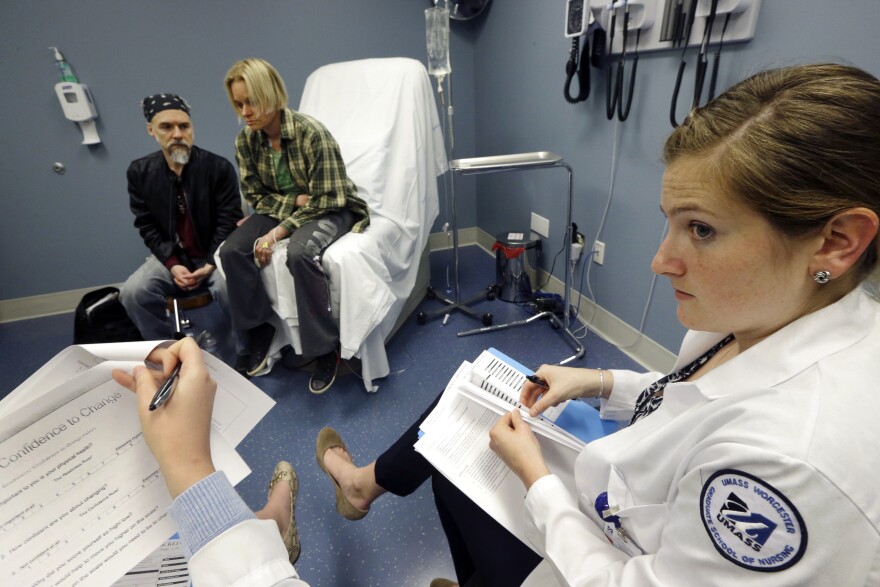The University of Maine System announced plans Wednesday to double enrollment in its nursing program in response to the state’s workforce shortage.
The five-year plan hinges, in part, on a bond issue this November that would authorize $49 million in funds to the university system for infrastructure improvements.
Already, there are hundreds of nursing vacancies in the state, says University of Maine System Chancellor James Page. By 2025, the number is expected to swell to more than 3,000.

“Although we face these kinds of challenges in just about every profession in the state, the one in nursing — in health care — is particularly acute,” he says.
That’s because the demand for nurses will increase as Maine’s population over 65 grows faster than both the New England and national averages — a point that was underscored as Page unveiled the Nursing Workforce Plan at the Wisdom Summit on aging in Augusta.
Page says one strategy to bring in more nursing students is to expand degree programs to rural areas of the state. The University of Maine at Augusta will launch baccalaureate nursing programs in Ellsworth, Brunswick, Rockland and Rumford next year, says President Rebecca Wyke.
“So individuals who might already be living and working and raising families in those communities but would like to pursue a baccalaureate education would have the opportunity to do so,” she says.
Farther north, the University of Maine at Fort Kent is collaborating with its sister school in Presque Isle to offer a nursing degree program there. Also, Wyke says, the University of Maine at Machias is developing an accelerated degree program Down East.

“So each of us using our strengths in different ways to address needs across the state,” she says.
Of course, higher education comes with a price tag. So, the Nursing Workforce Plan will also provide education tuition-free for eligible students, Page says.
“As a state, we cannot afford to have qualified students who are not going through and achieving this outcome because of a short-term financial challenge,” he says.
The university system is facing its own financial challenge — some of the elements of the plan hinge on whether voters approve a $49 million bond this November. It would fund infrastructure improvements for the state’s university system. About a quarter of the bond money would directly support nursing education through new and updated labs and classrooms.
If all goes according to plan, nursing enrollment would climb from the university system’s current 1,900 students to 3,800 in five years. But Ryan Wallace, director of the Maine Center for Business and Economic Research at the University of Southern Maine, is skeptical whether that will be enough to prevent a workforce shortage.
“I think educational institutions are going to be a key component of solving that challenge, but we’re going to need to find other ways to address it,” he says.
Wallace says many states, including those in New England, also face nursing workforce shortages, and Maine will have to compete to attract nurses to the state and keep them here.



